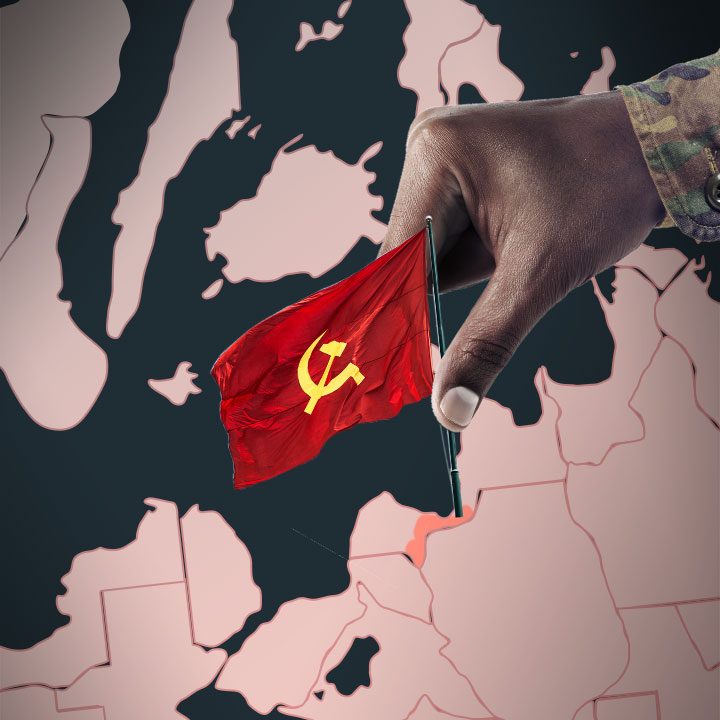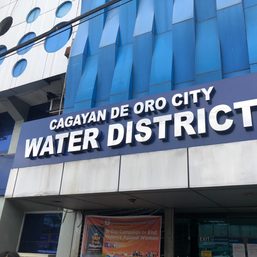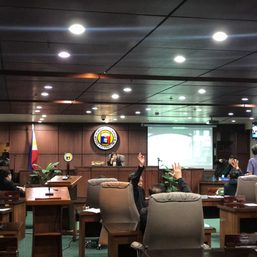SUMMARY
This is AI generated summarization, which may have errors. For context, always refer to the full article.

The international group Human Rights Watch (HRW) called on Cagayan de Oro’s leaders and civil society groups to reject and act on a ranking city police official’s revelations about the extent of the Duterte administration’s campaign against its critics.
The group cautioned on Saturday, April 24, against the prospects of Cagayan de Oro emerging as the “red-tagging capital of the Philippines.”
The warning came as a response to an April 20 video, posted on Radio Mindanao Network’s “RMN DXCC 828” Facebook page, that showed the acting spokesman of the Cagayan de Oro City Police Office (COCPO) revealing that all those red-tagged in the city were being surveilled.
Carlos Conde, HRW senior researcher, said it was “probably the most damning statement by anybody from the (national police) about the extent of the red-tagging being done, apparently not just against activists but also politicians and government employees at all levels.”
In the DXCC interview, Lieutenant Colonel Joel Nacua said even politicians, and other prominent people down to the rank-and-file government workers in the city, were being “continuously monitored until such time that we find something that can be used to implicate them.”
Included in the surveillance was a staff of a city councilor, Nacua said. The councilor too was recently red-tagged after her aide was accused of ties with the communist insurgency, allegations frowned on by Mayor Oscar Moreno and other local officials.
“Walay gipili niana – even ang pinakamubo nga position sa atong syudad. Labi na ‘ning mga mubo. Dili nato sila ma-underestimate nga dako sila’g impluwensya,” Nacua said in the 4-minute video clip. (We don’t choose who gets monitored – not even those holding the lowest positions in the city. We cannot underestimate their influence.)
He declined to say what evidence the police have against any of those red-tagged in Cagayan de Oro. “We cannot divulge that yet,” said Nacua, adding that the information they have on the red-tagged were being assessed and validated by various law enforcement groups.
He said that while the police didn’t necessarily equate red-tagging with guilt, “we have expanded our campaign” against the Communist Party of the Philippines-New People’s Army (CPP-NPA) in line with President Rodrigo Duterte’s Executive Order No. 70.
The order, signed by Duterte in late 2018, created the National Task Force to End Local Communist Armed Conflict (NTF-ELCAC), and set a multipronged government approach against the rebel movement. It involves all government offices down to the barangays in the campaign against the decades-old insurgency problem.
Several groups were organized, according to Nacua, to fight the communist ideology, prevent citizens from getting “hypnotized by people who only see the government’s failures,” and so that these people would be avoided.
Mere membership in the Communist Party and adherence to the communist ideology ceased to be grounds for prosecution in the Philippines following the 1992 repeal of a 1957 statute that outlawed such, unless overt criminal acts are committed.
Conde said, “If Nacua is to be believed – and I don’t see why we shouldn’t – this confirms the sweeping campaign by the government and the PNP to curtail the rights of people. He admits that the PNP is practically in the business of controlling people’s politics and ideologies, and confirms as well that criticism of government might put a citizen – any citizen – in trouble with the police.”
He said the police surveillance of perceived threats did not come as a surprise to him. “This is nevertheless a serious concern because, by Nacua’s admission, nobody is safe from the prying eyes of the police and the subsequent application of force against those red-tagged.”
Conde said the city government should not stand for this, and should reject this.
“Mayor Moreno should investigate this admission by the PNP and take appropriate action. The city council should do the same. Civil society groups should raise their protest. Our beloved city cannot be the red-tagging capital of the Philippines, as Nacua’s admission suggests,” said Conde, who hails from this city.
He added, “Kagay-anons have fought long and hard for their freedoms for them to be treated like this. They deserve a better, rights-respecting police force.”
Cagayan de Oro was the bailiwick of the anti-Marcos movement in Mindanao in the early and mid ’80s. Its mayor then, Aquilino Pimentel Jr, who subsequently rose to become Senate president, was among the opposition leaders jailed during the Marcos era because of their political stand. They too were red-tagged.
A new wave of red-tagging incidents forced organizers of the first community pantry set up in the city on April 19, to stop their initiative after 3 days of food aid-giving.

A journalist, who wrote about its opening, also found himself being red-tagged for the nth time in anti-communist leaflets and posters circulated against the pantry’s organizers. – Rappler.com
Add a comment
How does this make you feel?





There are no comments yet. Add your comment to start the conversation.